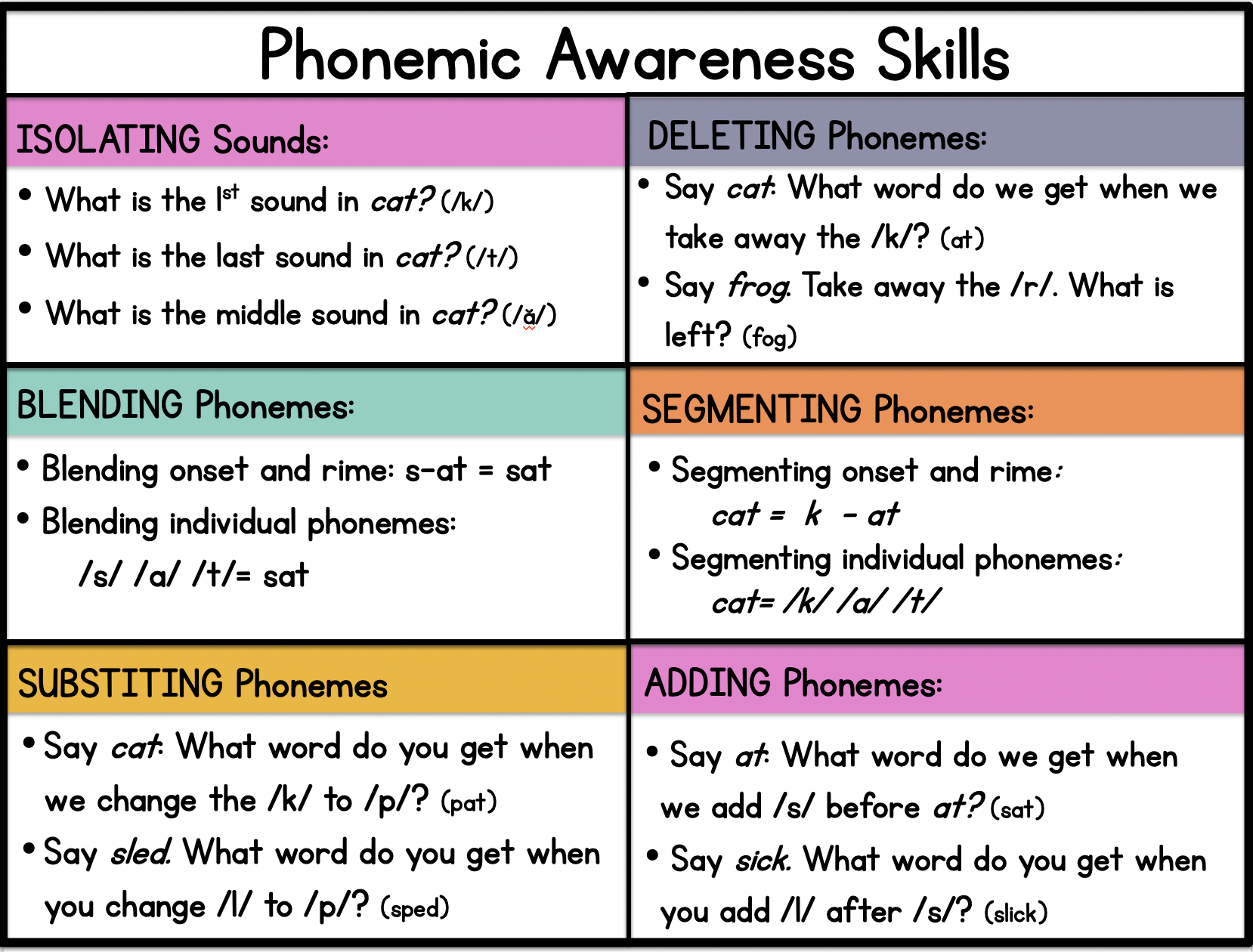
Tips and Activities for Phonemic Awareness Sarah's Teaching Snippets
A variety of activities to teach phonological and phonemic awareness skills in the classroom. Jocelyn Seamer, an expert in systematic reading instruction, presents a series of videos about systematic synthetic phonics (SSP). View the first video in the series. The Literacy Hub provides free, online professional learning to support schools.

Sarah's First Grade Snippets Phonemic Awareness Intervention Pack Part 2
Phonological awareness is a critical skill for all students' literacy development and a predictor of later reading and spelling success. Phonological awareness refers to oral language and is the understanding of the different ways that language can be broken down into smaller parts. Phonological awareness consists of five subskills beginning.

Phonemic Awareness Intervention Kit and Activity Pack Phonological awareness, Phonological
The 50 Phonemic Awareness Activities set is an excellent educational tool designed to help children develop their phonemic awareness. With 50 double-sided activity cards, it covers a wide range of topics, including rhythm, discriminating between sounds, syllables, alliteration, articulation, and more. Each card features teaching objectives.

PreReading Skills Focus Phonological Awareness Phonological awareness, Phonological
Unlimited English practice. Get personalised guidance & win fun awards. Learn 1500+ P-12 English skills on IXL.com. Grammar, reading, spelling, & more!

Phonemic awareness activity The Measured Mom
The examples below provide some ways to incorporate phonological awareness into everyday classroom activities. Example activities: Syllable awareness. Rhyme. Alliteration. Onset-rime. Initial and final sounds. Segmenting words into sounds and blending sounds into words. Deleting and manipulating sounds in words.
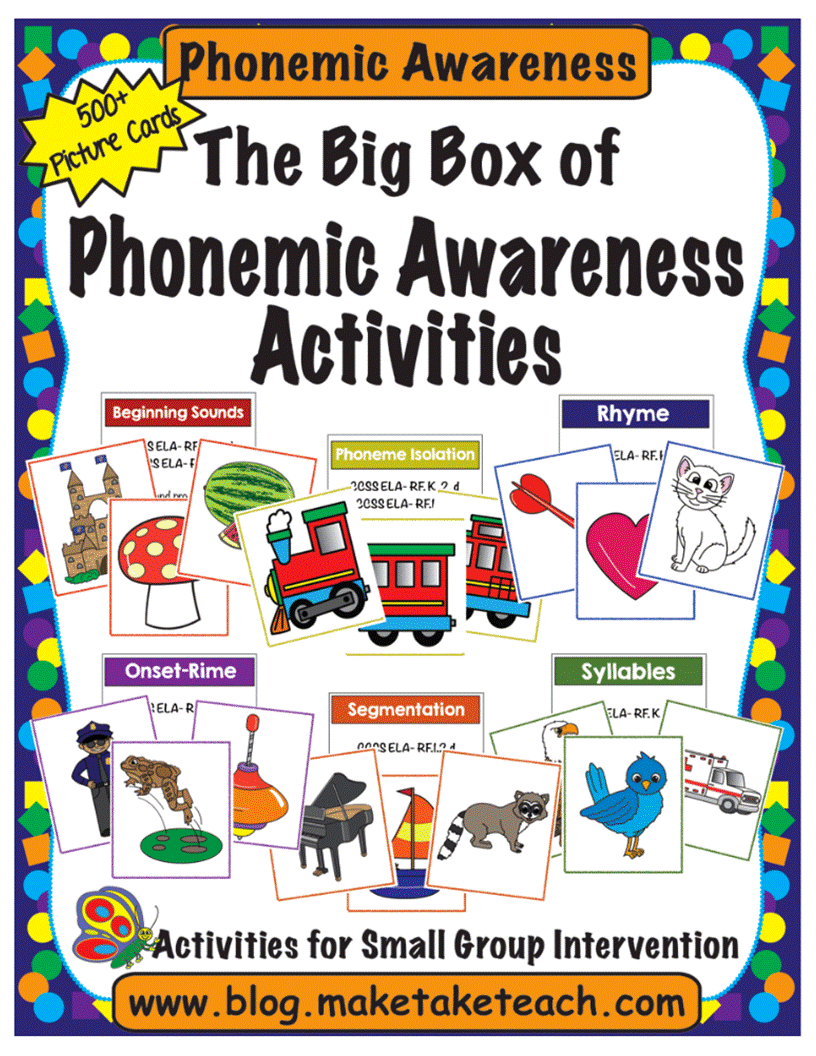
Phonemic Awareness Activities For Kindergarten Kindergarten
Phonemic awareness activities for kindergarten, first grade, and intervention! These teacher task cards will help you make the most of every classroom moment. Use them during small groups, whole group, one-on-one, in tutoring, or during class transitions to make sure that your students are building phonemic awareness every day!.
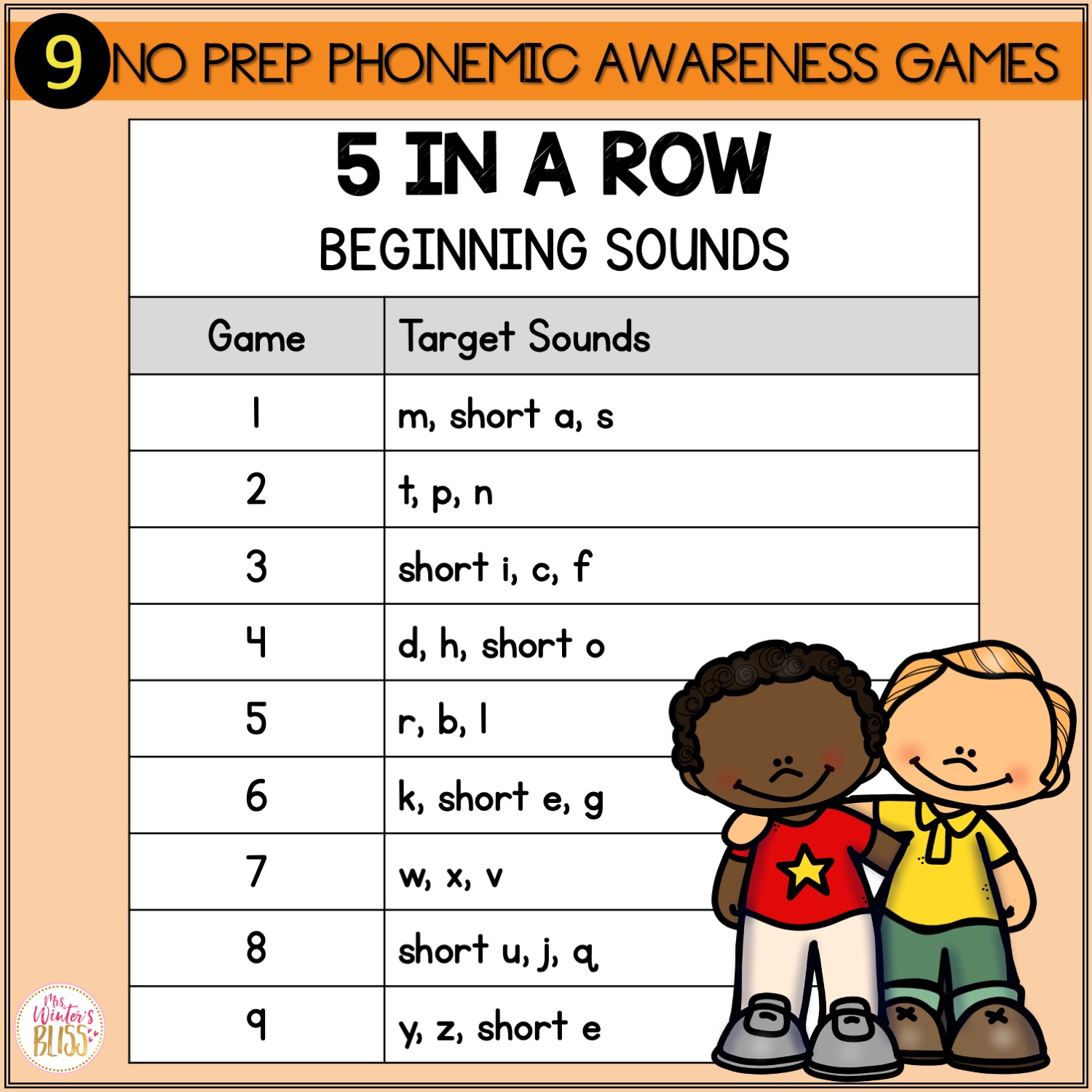
Phonemic Awareness Activities Beginning Sound Worksheet Games Mrs. Winter's Bliss
This article features activities designed to stimulate the development of phonemic awareness in preschool and elementary school children. The activities originally appeared in the book Phonemic Awareness in Young Children: A Classroom Curriculum (opens in a new window). Listening to sequences of sounds. From chapter 3: Listening games. Objective

to our summer blog party, brought to you by the Reading Crew! Week one is all about
Grade-Wise Phonemic Awareness Activities Phonemic Awareness Activities for 1st Graders. Phoneme Sound Match: Have the kids match pictures to the beginning, middle, or ending sounds they hear. For example, match "sun" to the picture of the sun. Rhyme Time: Give them simple words and ask them to find rhyming words.

Phonological Awareness Activities and Games to Engage Your Students
Low-Prep Phonemic Awareness Activities. Use these activities to help kids work with individual sounds in spoken words. 16. Mirror Sounds. Help kids notice how their lips, tongue, and throat move, look, and feel when they make a specific sound. (Later, they can attach this information to the letter that represents the sound.)

Printable Phonemic Awareness Activities Printable Word Searches
Phonemic awareness activities are also great to use during transition times throughout the day. I often use the ten minutes before lunch, and sometimes during group restroom breaks, to practice and reinforce listening and oral language skills. And the payoff is big! If you give phonemic awareness the attention it deserves, your students will be.

Tips and Activities for Phonemic Awareness Sarah's Teaching Snippets Phonemic awareness
Phonemic Awareness Activities (By Skill) To make it easier for teachers, we decided to unpack 8 of the most crucial phonemic awareness skills that young children need to master so that they can be set up for success when it comes to spelling and reading. Each of these skills outlined also includes some suggested questions and phonemic awareness.

phonological awareness activities for kindergarten
Where phonemic awareness focuses on the sound of word segments, phonological awareness concentrates on the complete words. Words are strung together to create sentences. Below is a list of phonemic awareness games for pre-k, kindergarten/1 st graders that focus on the three main aspects of phonemic awareness: listening, rhyming, and segmentation.
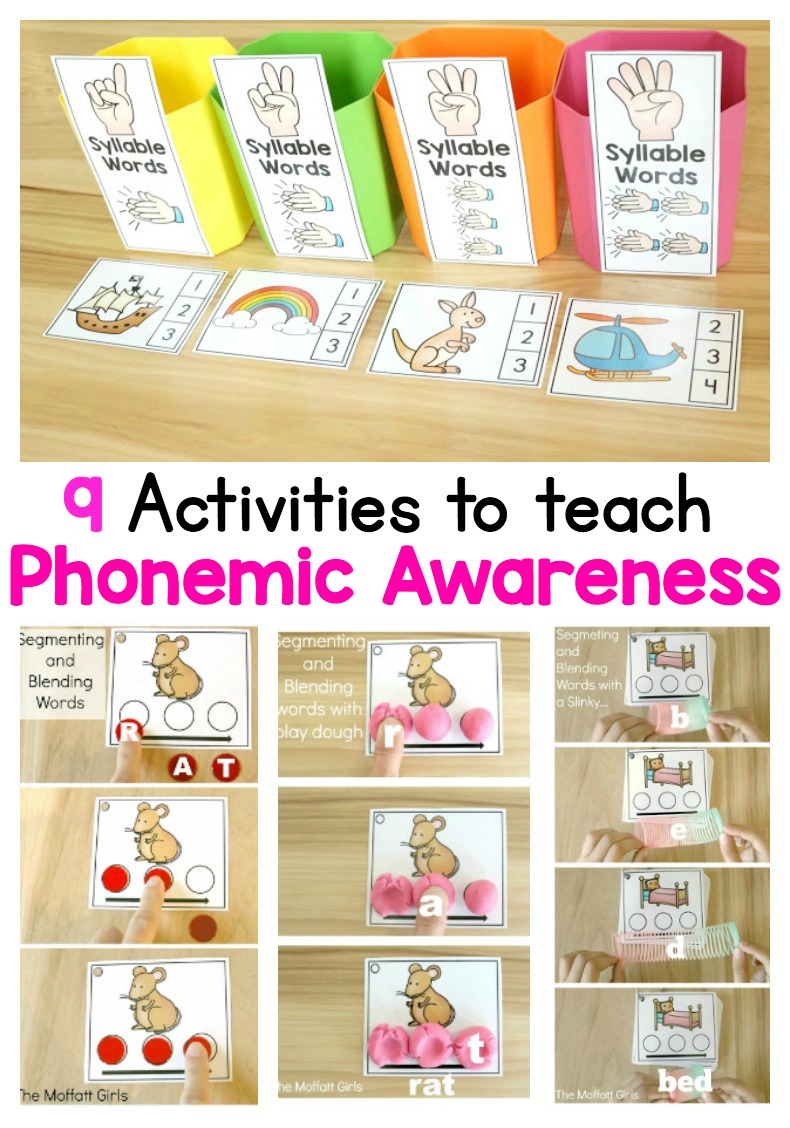
What is Phonemic Awareness and Why Teach it?
The right activities can help kids develop the Core Skill of phonemic awareness, part of building the 5 C's at the heart of the Begin Approach to helping kids thrive in school and life. Core Skills support learning in other areas, and giving kids a strong foundation in them helps set them up for long-term success.
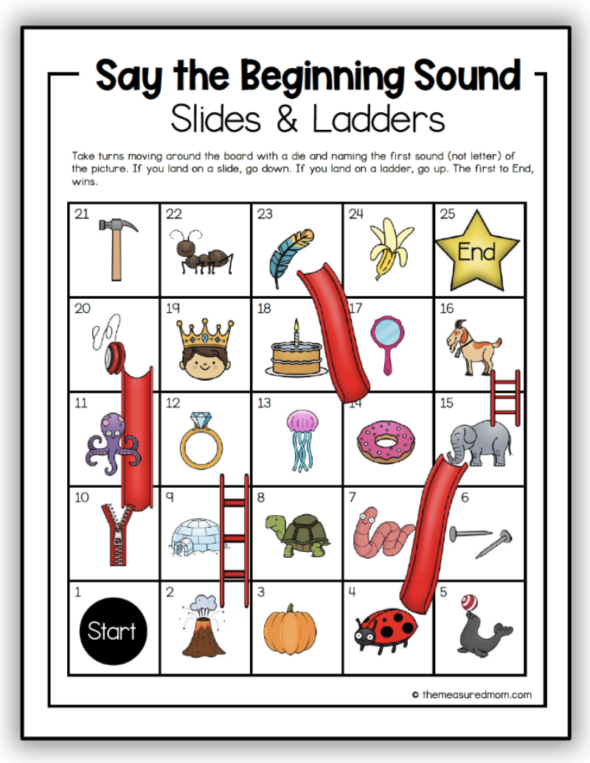
Phonemic Awareness Games & Activities The Measured Mom
What is 'phonemic awareness'? 'Phonemic awareness' is the ability to hear and manipulate the different sounds in spoken language. Before children learn to read, they need to be able to recognise that words are made up of speech sounds, or 'phonemes'. There are 44 sounds in the English language, some represented by individual letters.

Teach child how to read Phonics Awareness Worksheet Free For Kindergarten
Phonemic awareness is the ability to notice, think about, and work with the individual sounds ( phonemes ) in spoken words. Manipulating the sounds in words includes blending , stretching, or otherwise changing words. Children can demonstrate phonemic awareness in several ways, including: recognizing which words in a set of words begin with the.

Printable Phonemic Awareness Activities
Phonemic awareness involves the ability to identify, isolate, manipulate, and blend individual phonemes — the smallest units of sound — in words. For example, being able to identify that the word 'cat' has three sounds (/k/ /a/ /t/) and being able to change the /k/ sound to /b/ to create the word 'bat' is a sign of phonemic.